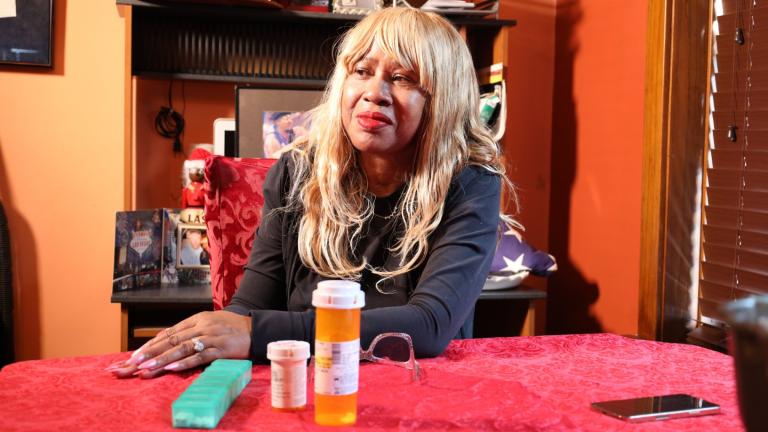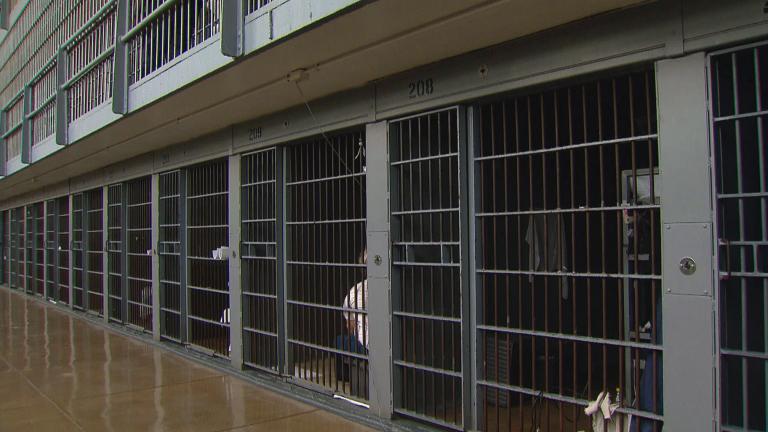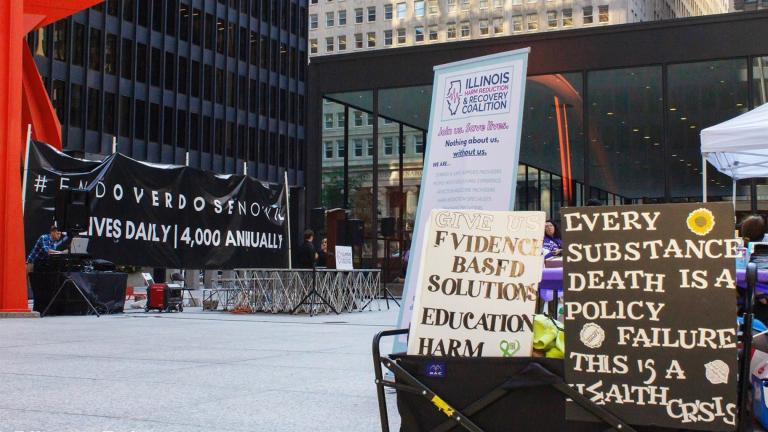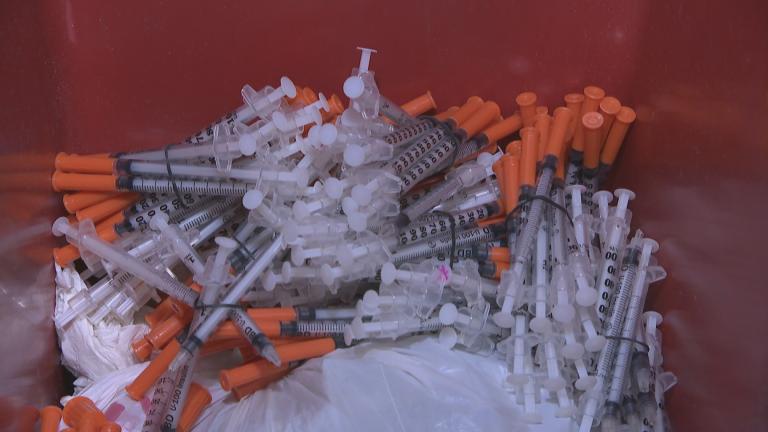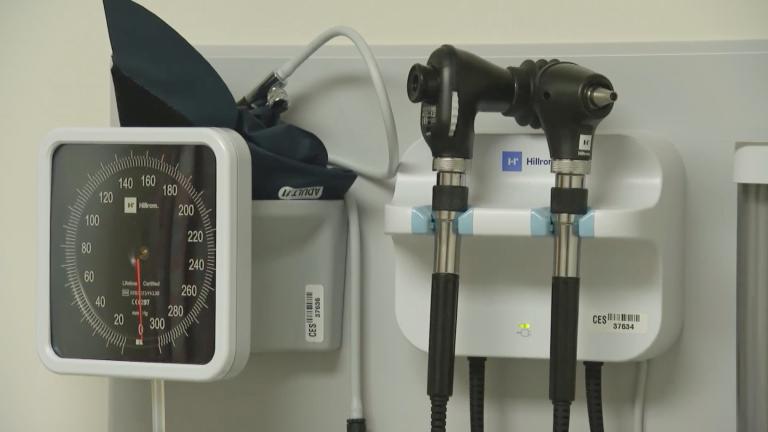Video: Dr. Kiran Joshi of the Cook County Department of Public Health, Erica Ernst of the Chicago Recovery Alliance, and Rep. LaShawn Ford join “Chicago Tonight” to discuss more on safe drug consumption sites. (Produced by Blair Paddock)
Last week, the U.S. Justice Department signaled it may allow so-called safe injection sites – safe havens for people to use drugs with protections against fatal overdoses – to open.
For local advocates, it was a welcome shift.
“I’m an old-time harm reductionist, and I have long ago come to the realization that we cannot arrest our way out of our drug problem in the United States. I find it to be a breath of fresh air and exciting,” Ed Stellon, executive director of Heartland Alliance Health, said of the Justice Department’s stance.
State Rep. La Shawn Ford, who’s sponsored a bill that would allow for the creation of such sites in Illinois, called the shift “long overdue,” but acknowledged it could help move the needle on the bill he’s filed.
“When you have the United States actually weighing in that comes with lots of research and that sends a strong message and sends the message that it’s the right thing to do,” said Ford, who prefers the term safe consumption site because it reflects all the ways in which people use drugs.
Overdose deaths in the United States are at an all-time high. According to the U.S. Centers for Disease Control and Prevention, an estimated 100,000 people died of drug overdoses from May 2020 to April 2021.
Opioid overdoses have also spiked in Chicago and Cook County over the past few years, according to officials. In 2020, the Cook County Medical Examiner’s office recorded 1,840 opioid-related deaths, and as of late January, the office has confirmed 1,602 opioid-related overdoses in 2021 with 717 cases still pending review.
“In the pandemic, we’re seeing an escalation of homelessness and an escalation in overdoses because of fentanyl,” said Erica Ernst, interim executive director of the Chicago Recovery Alliance, an organization that works to support people who use drugs and those affected by drug use. “We see a lot of our folks who have an apartment, trying to isolate and not get COVID, so they use alone and there’s no one there to reverse an overdose.”
The Chicago Recovery Alliance has been pushing for safe consumption sites for years, according to Ernst. “We’re really happy it’s now being taken more seriously.”
While critics argue that such sites encourage illegal drug use and burden neighborhoods, advocates disagree.
“No drugs are provided, but people can bring their own substance that they purchased themselves elsewhere and use in a safer space” under the supervision of others, Ernst said. “If there should be any negative repercussions, such as an overdose, there’ll be an immediate response.”
Advocates also argued that such sites would not lead to an influx of drugs into communities.
“People are very concerned about people coming into their community bringing drugs and other things,” Stellon said. “But the reality is that these behaviors and activities are already happening underground in alleys and parks.”
Ford agreed.
“It’s good for our communities because we know that there’s often lots of needles around in parks and streets because people are using heroin when they do inject. (Safe consumption sites) cut down on the nuisance of needles,” he said. “It has also been proven that this could save lives.”
In November, two facilities opened in New York City to provide a monitored place for drug users to partake, with staffers and supplies on hand to reverse overdoses. So far, the sites have intervened in more than 110 overdoses among more than 500 users, many of whom have had multiple visits, according to OnPoint NYC, which runs the facilities.
Not only do such sites help save lives, they can also help connect people with services, according to Stellon.
“It’s more than just preventing or reversing overdoses,” he said. “It’s about building a relationship with a vulnerable person who’s isolated by the norms of our society, drawing them in and linking them to people who can provide access to mental health services, primary care services.”
Legislation introduced by Ford includes a provision that would provide people with referrals to substance use disorder treatment and recovery support services, among other things like a syringe exchange, for people if and when they’re ready.
“There’s a good chance people may go to a safe consumption site one day and actually say, ‘I want to get help and stop using,’” he said. “If people want to connect with medication-assisted treatment, there should be an opportunity for that there. We have to meet them where they’re at.”
While Ernst believes having a state law allowing for the creation of safe consumption sites is crucial, she’s concerned treatment may be prioritized over the people they’re trying to help.
“I want to make sure we don’t lose sight of our drug users,” she said. “I want to make sure we’re not pushing them into rehab. That’s not the tone of a safe consumption site. The tone is we want you alive today and we value your life, and if you want some form of recovery, we got you. And in the meantime, your life is valuable.”
Note: This story will be updated with video.
The Associated Press contributed.
Contact Kristen Thometz: @kristenthometz | (773) 509-5452 | [email protected]

